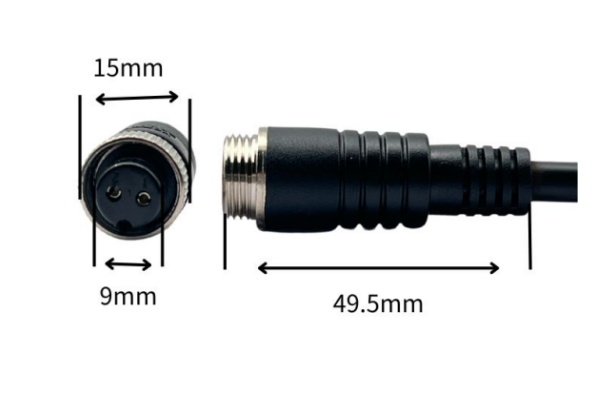News


News

Material Showdown: Silicone vs. Fluororubber in Waterproof Auto Connectors
Release time:2025-07-04
viewed:378
The sealing materials in waterproof auto connectors face escalating thermal challenges as vehicle electrification advances. This technical analysis compares silicone and fluororubber - the two dominant elastomers - focusing on their high-temperature performance in automotive connector applications.

Silicone's Thermal Profile
Silicone-based waterproof auto connectors maintain flexibility from -60°C to 200°C, with specialized grades reaching 230°C. The material's Si-O backbone provides exceptional thermal stability but begins oxidative degradation above 200°C, evident through hardening and compression set increase.
Fluororubber's Advantage
Fluorocarbon elastomers in premium waterproof auto connectors withstand continuous 225°C exposure, with peak resistance at 250°C. The C-F bond energy (485 kJ/mol) versus silicone's Si-O (452 kJ/mol) explains fluororubber's superior performance in underhood applications.
Compression Set Behavior
After 1000 hours at 175°C, silicone seals in waterproof auto connectors show 40-50% compression set versus fluororubber's 20-30%. This directly impacts long-term sealing force maintenance in engine-mounted connectors.
Chemical Resistance Synergy
Fluororubber's 300% better oil resistance complements its thermal stability in waterproof auto connectors near transmissions. Silicone requires protective coatings when exposed to lubricants above 150°C.
EV Battery Systems
Silicone dominates 400V+ waterproof auto connectors due to better dielectric properties at 150-180°C operating temperatures. Its 1014 Ω·cm volume resistivity prevents tracking currents.
Exhaust Proximity Cases
Fluororubber becomes mandatory for waterproof auto connectors within 30cm of exhaust components, where radiant heat creates 200°C+ microenvironments.
Material selection for waterproof auto connectors requires balancing thermal needs against cost and secondary properties. While fluororubber outperforms in extreme heat, silicone offers better electrical insulation for high-voltage applications. Emerging hybrid materials may bridge this performance gap in next-generation automotive sealing systems.